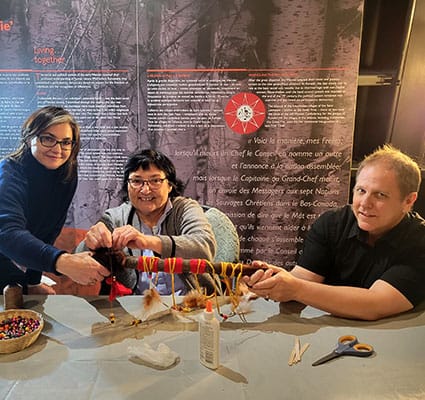ICCE 2023 Annual Report: Celebrating Achievements and Looking Forward

The 2023 Annual Report from the Indigenous Centre for Cumulative Effects (ICCE) highlights a year of accomplishments, milestones and forward-thinking initiatives. This review shares the organization’s ongoing commitment to empowering Indigenous communities based on its strategic pillars.
The opening section of the report features messages from the ICCE leadership: Executive Director Leea Litzgus, Board Chair Angie Gillis and Technical Advisory Committee Co-Chairs Alexandra Bridges and Pepita Elena McKee, setting the stage for the year’s achievements. These reflections emphasize the collective efforts and collaborative spirit that have driven ICCE’s successes.
The core of the annual report is dedicated to the key achievements across the ICCE strategic pillars:
- Capacity Building and Training
- Networking, Provision of Expert Advice and Information Sharing
- Strengthening ICCE Governance
- Corporate Management and Leadership
Each of the above pillars represents a fundamental aspect of the organization’s mission, while the 2023 achievements reflect significant progress in support of that mission.
One of the standout events of the year was the 2023 ICCE National Conference, which brought together Indigenous communities, environmental technicians, wellness workers, land management professionals, Elders and knowledge holders.
The Community Funding Program demonstrated ICCE’s commitment to supporting communities and organizations to implement impactful programs that address cumulative effects.
ICCE’s dedication to knowledge sharing was evident through numerous speaking engagements and collaborative projects. These efforts facilitated the exchange of best practices and fostered a culture of continuous learning and improvement.
Looking ahead, the preparation and development of the Strategic Plan 2024-2027 marked a significant milestone. This forward-looking document outlines the organization’s priorities, goals and strategies for the coming years.
The growth of the ICCE team was another notable achievement. The addition of new team members brought fresh perspectives and expertise, further strengthening the organization’s ability to address cumulative effects.
This annual report also offers a glimpse into the exciting initiatives planned for the 2024-25 fiscal year. ICCE aims to build on the momentum of 2023 and launch new projects that align with its strategic objectives well into the future.




















